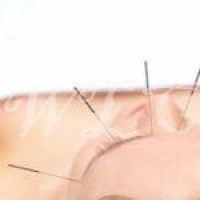Propecia
- Prescription Medication Reviews
- Hits: 1345
Generic Name: Finasteride 1 mg Tablets (fin-AS-ter-ide)
Other Brand Names: Proscar
Propecia is used for treating certain types of male pattern hair loss (androgenic alopecia) in men. Propecia is a steroid reductase inhibitor. It works by reducing the amount of the hormone dihydrotestosterone (DHT) in the body. This may block certain types of hair loss in men.
What is the most important information I should know about Propecia?
• Women who are or who may become pregnant must not handle crushed or broken Propecia tablets. The medication could be absorbed through the skin. Propecia is known to cause birth defects in a developing male baby. Exposure to whole tablets should be avoided whenever possible, however exposure to whole tablets is not expected to be harmful as long as the tablets are not swallowed.
What is Propecia?
• Propecia prevents the conversion of testosterone to dihydrotestosterone (DHT) in the body. DHT is involved in the development of benign prostatic hyperplasia (BPH) and hair loss.
• Proscar is used to treat benign prostatic hyperplasia (enlarged prostate). Propecia is also used to reduce hair loss due to male pattern baldness.
• Propecia may also be used for purposes other than those listed in this medication guide.
What should I discuss with my healthcare provider before taking Propecia?
• Before taking this medication, tell your doctor if you have liver disease. You may not be able to take Propecia, or you may need a lower dose or special monitoring during treatment.
• Propecia is intended for use by men only.
• Propecia is not indicated for use by women. Do not take or handle this medication if you are pregnant or are could become pregnant during treatment. Propecia is in the FDA pregnancy category X. This means that it is known to cause birth defects in an unborn baby. Women who are or who may become pregnant must not handle crushed or broken Propecia tablets. The medication could be absorbed through the skin. Propecia is known to cause birth defects in a developing male baby. Exposure to whole tablets should be avoided whenever possible, however exposure to whole tablets is not expected to be harmful as long as the tablets are not swallowed.
• It is not known whether Propecia passes into breast milk. Propecia is not intended for use by women. Do not take this medication if you are breast-feeding a baby.
How should I take Propecia?
• Take Propecia exactly as directed by your doctor. If you do not understand these instructions, ask your pharmacist, nurse, or doctor to explain them to you.
• Take each dose with a full glass of water.
• Propecia can be taken with or without food.
• It is important to take Propecia regularly to get the most benefit.
• Your doctor may perform blood tests or other forms of monitoring during treatment with Propecia. One of the tests that may be performed is called PSA (prostate-specific antigen). This test is used to help detect prostate cancer. Propecia will reduce the amount of PSA measured in the blood. Your doctor is aware of this effect and can still use PSA to help detect prostate cancer.
• Store this medication at room temperature away from moisture and heat.
What happens if I miss a dose?
• Take the missed dose as soon as you remember. However, if it is almost time for the next dose, skip the dose you missed and take only the next regularly scheduled dose. Do not take a double dose unless otherwise directed.
What happens if I overdose?
• Seek emergency medical attention if an overdose is suspected.
• Symptoms of a Propecia overdose are not known.
What should I avoid while taking Propecia?
• There are no restrictions on food, beverages, or activities during treatment with Propecia unless your doctor directs otherwise.
What are the possible side effects of Propecia?
• Stop taking Propecia and seek emergency medical attention if you experience an allergic reaction (difficulty breathing; closing of the throat; swelling of the lips, tongue, or face; or hives).
• Other, less serious side effects have been reported but usually resolve with continued treatment. Continue to take Propecia and notify your doctor if you experience
· decreased libido (sex drive);
· decreased volume of ejaculate;
· impotence (trouble getting or keeping an erection); or
· breast tenderness or enlargement.
• Side effects other than those listed here may also occur. Talk to your doctor about any side effect that seems unusual or that is especially bothersome.
What other drugs will affect Propecia?
• There are no known interactions between Propecia and other medications. Talk to your doctor and pharmacist before taking any prescription or over-the-counter medicines, including vitamins, minerals, and herbal products.














